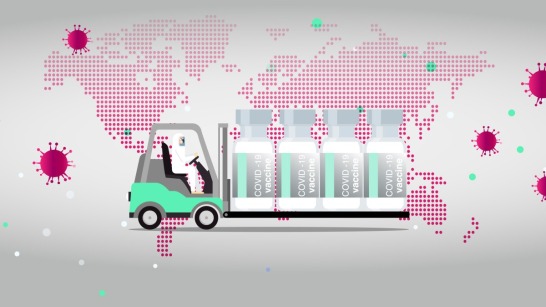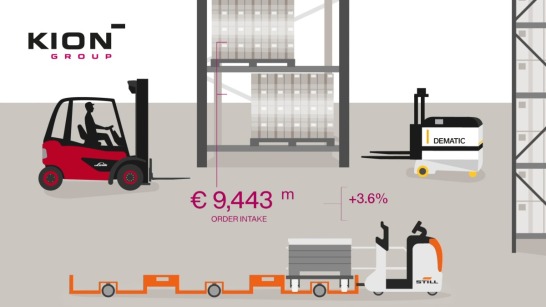Reliable helpers for distributing pharmaceuticals
In neighboring Austria, too, vaccine distribution is being organized from Kwizda Pharmaceutical Wholesale’s central storage facility in Lower Austria. It was to here that the first 7,200 doses of the Moderna vaccine were delivered at the beginning of this year. Not only does Kwizda have sufficient storage capacity and appropriate temperature conditions, it can also boast comprehensive expertise in handling vaccines, a task undertaken with the aid of its numerous STILL electric forklifts and other warehouse trucks. 48 hours are needed to defrost the vaccines under closely monitored conditions, according to Thomas Brosch, managing director of Kwizda Pharmahandel and member of the board of management of PHAGO, the Austrian Association of Full-Line Pharmaceutical Wholesalers. While defrosting, the vaccines must not be exposed to any vibration; they then have to be delivered at a controlled temperature of between plus two and plus eight degrees. During this 48 hour period, the team at Kwizda contacts the local vaccination centers to find out precisely how much each center requires, where to deliver the vaccines and the contact person’s name. This is where precise arrangements and rapid processes are vital – because once the vaccine has been removed from the freezers, it cannot be re-frozen. STILL’s fleet of forklifts is on permanent standby, ready to handle the vaccines quickly and accurately, ensuring smooth processes and preventing these invaluable vaccines from exceeding their expiry date.
Reliable supplies of tests and other medical materials
Another important tool in containing the coronavirus pandemic are tests which offer rapid and reliable diagnosis. Because it remains as critically important as ever to identify infections as quickly as possible to prevent them from spreading further. One of the most significant suppliers both of PCR and rapid tests is Becton Dickinson (BD). Its comprehensive portfolio also includes the associated equipment for laboratory diagnosis as well as special catheters and syringes for administering medicines to COVID 19 patients with weakened immune systems who are being treated in intensive care units. So that all these essential items, currently being consumed in large quantities, reach the test centers, laboratories and hospitals without any hold-ups, BD also operates a state-of-the-art, automated Dematic distribution center. The logistics campus in Temse in Belgium consists of several partly temperature-controlled high-bay storage facilities with automated cranes and is capable of holding more than 100,000 pallets. The adjoining dispatch area, equipped with automated conveyor belts, operates 24 hours a day, five days a week, supplying Europe, the Middle East and Africa with vital medical materials.
The cargo airport’s highly-effective fleet
The importance of the role played by logistics in the global immunization campaign can also be seen at the Lufthansa Cargo facility at Chicago’s O’Hare International Airport. As manufacturers began to produce vaccines against coronavirus, the airport suddenly received an immense number of enquiries because only a very few airports possess the appropriate infrastructure for transporting vaccines. Only a short while before, Chicago O’Hare, supported by Lufthansa Cargo and DB Schenker, had made a huge investment in storage capacity for pharma logistics and had established permanently monitored cold storage areas. Furthermore, the airport is equipped with a large fleet of Linde Material Handling’s lithium-ion forklift trucks which meet the demanding hygiene requirements. The fleet can boast high availability – an extremely important feature since there can be no delays when loading the aircraft. Within a tightly-timed schedule, only 2.5 hours are available for each plane. This represents a very narrow window because the aircraft are not really designed for this type of freight and positioning the pallets within the planes poses particular challenges for the ground staff. It is here that the reliable Linde forklift trucks play an important supporting role in the truest sense of those words because, in the worst case, any delay could lead to the plane not taking off on time and, as a result, to whole pallets of vaccine being classified as unusable. But the fleet and the cargo center staff are giving their all – every day dispatching up to ten million doses of vaccine to recipients throughout the whole world.


